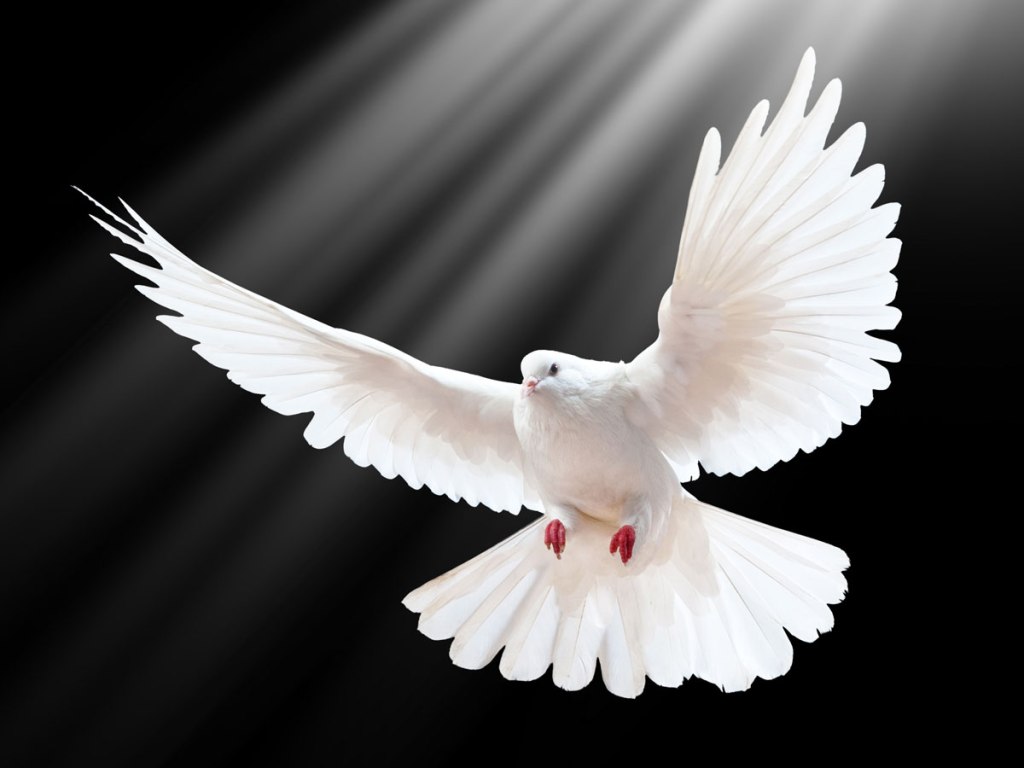
Photo: Wild Gratitude.
Many of us know about the World War I Christmas truce, when as many as 100,000 soldiers on European battlefronts lay down their arms for a night.
I’ve been saving up a similar story by Dave Kindy at the Washington Post — this one from World War II. It’s a lovely one, with a Loaves and Fishes angle.
“On Christmas Eve 1944, heavy snow blanketed the Hürtgen Forest in Germany, near the Belgian border. Inside a tiny cabin deep in the woods, 12-year-old Fritz Vincken and his mother, Elisabeth, listened to warplanes and artillery shells as the Battle of the Bulge neared its climax. …
“Months earlier, the mother and son had moved to the isolated cottage when their home in nearby Aachen had been destroyed by Allied bombing. For Fritz, who first recounted his story in a 1973 article for Reader’s Digest, the remote cabin offered a reprieve from the death and destruction of World War II.
“They were alone because Fritz’s father, Hubert, who baked bread for the German army, had recently been called into service as Allied armies pressed closer to Germany. …
“Less than two weeks earlier, the tranquility of the Hürtgen Forest had been shattered when Field Marshal Gerd von Rundstedt unleashed 30 divisions hidden in the nearby Ardennes Forest of Belgium for the last major German offensive of World War II. Vicious fighting erupted across the Western Front, including around the Vincken cabin, as Allied armies desperately tried to repel the surprise attack amid blizzard conditions.
“As mother and son prepared Christmas Eve dinner, they were startled by a knock on the door. The closest neighbors were miles away. With Fritz by her side, Elisabeth opened the door and saw three young soldiers, all armed. Two were standing; the third was lying in the snow with grievous wounds. The men spoke a language unknown to the Vinckens. Fritz realized they were Americans.
“ ‘I was almost paralyzed with fear, for though I was a child, I knew that harsh law of war: Anyone giving aid and comfort to the enemy would be shot,’ Fritz later remembered.
“Elisabeth also knew the penalty for harboring Americans. But the soldier bleeding in the snow was young enough to be her son. She motioned for all three to enter the tiny cabin. Fritz and his mother helped the severely injured man into a bed and tended to his wounds.
“None of the Americans spoke German, but Elisabeth and one of the men communicated in French. Elisabeth, seeking to stretch their meager meal to accommodate the guests, told Fritz, Go get Hermann.’
Hermann was a rooster being fattened in case Hubert made it home for dinner. He was named for Hermann Göring, a Nazi leader for whom Elisabeth had little regard.
“Suddenly, there was another knock on the door. Fritz opened it, expecting to see more Americans lost in the forest. Instead, he was alarmed to find four German soldiers. The young men had become separated from their unit and were looking for shelter from the cold.
“Elisabeth went outside to speak with the new arrivals, telling them they were welcome to spend the night but had to leave their weapons outside. When the young Wehrmacht corporal started to object, Elisabeth looked at him sternly and said, ‘It is the Holy Night and there will be no shooting here.’
“While the Germans placed their weapons next to the woodpile, Elisabeth went back into the cabin and returned with the Americans’ guns. When they were all gathered inside, the enemies stared at each other in stony silence. …
“Elisabeth took command of the scene, Fritz wrote in Reader’s Digest, and had the combatants mingle close together. …
“When the wounded American started moaning, one of the Wehrmacht soldiers examined him. He had been a medical student before the war. … Eventually, everyone began to relax. Both groups of soldiers searched their backpacks for food to share. The Wehrmacht corporal contributed a bottle of red wine and loaf of rye bread.
“Soon the soup was served. Elisabeth bowed her head and said grace. Fritz remembered seeing tears in his mother’s eyes and noticed that some of the soldiers wept too, perhaps thinking of their families far away or feeling grateful that they wouldn’t have to fight on Christmas Eve. …
“Fritz always hoped to meet the soldiers again, though he knew his chances of seeing the Germans were not good, given their staggering casualty rate at the end of the war. He thought publicity might help, starting with his 1973 Reader’s Digest article, which President Ronald Reagan mentioned in a 1986 speech. In 1995, Fritz appeared on national television, telling his story on Unsolved Mysteries to host Robert Stack.
“A nursing home chaplain in Frederick, Md., saw the episode and remembered a resident telling a similar story. He contacted the TV producers about Ralph Blank. In 1996, Fritz flew to Maryland to meet with Blank, who was 76 and in poor health. They recognized each other immediately. …
“The reunion was filmed and shown on Unsolved Mysteries later that year. At one point during the episode, Ralph turned to Fritz and said, ‘Your mother saved my life.’ For the former German boy who was now an American citizen, that moment was the high point of his life.”
More at the Post, here.
